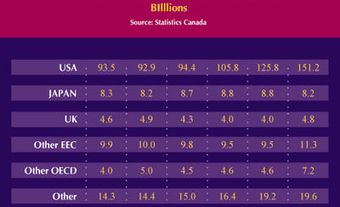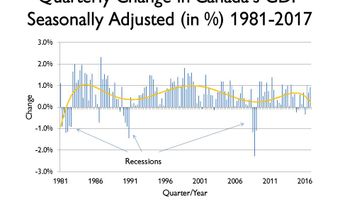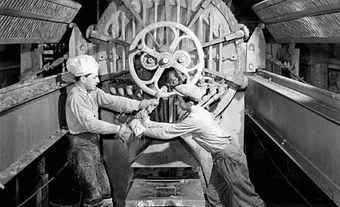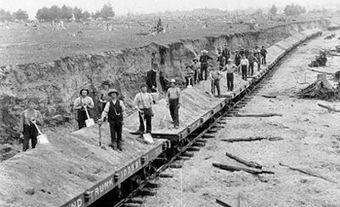The Royal Commission on the Economic Union and Development Prospects for Canada (also known as the Macdonald Commission) was appointed in 1982 to examine the future economic prospects of the country and the effectiveness of its political institutions. (See also Royal Commissions.) The commission was chaired by Donald S. Macdonald, a former minister of finance, and included 12 other commissioners who represented diverse elements of Canadian society. In addition to the normal representation of regional and linguistic interests, the commission included members from business, labour, the co-operative movement, the legal and academic communities, the public service and all three national political parties. In effect, many of the basic economic and ideological conflicts of the country were built into the commission from the outset, and the process of writing a report inevitably became an effort at consensus building.
Donald Stovel Macdonald
Donald S. Macdonald, chairman of the Royal Commission on the Economic Union and Development Prospects for Canada, 16 September 1971.
(photo by Rolls Press/Popperfoto via Getty Images/Getty Images)
Background
The appointment of the commission by Prime Minister Pierre Elliott Trudeau came as a surprise, even to senior members of his government. (See also Royal Commissions.) The immediate catalyst was the recession of 1981-82, but the creation of the commission also reflected pervasive concern both about the performance of the economy, which had been marked by inflation, unemployment, low-productivity growth and difficult labour relations, and about the nation's political process, which seemed increasingly incapable of generating effective policy responses to economic and social problems.
Scope of the Commission
Despite the commission's immense mandate, it was given only three years to complete its task. Styling themselves "A Commission of Canada's Future," the commissioners held two rounds of public hearings across the country and launched a major research program. The three-volume report was released in September of 1985 and was supported by 72 research volumes. The commission's recommendations reflected three underlying themes. First, the report emphasized that Canada should maintain an adaptive economy capable of adjusting rapidly to international economic changes and new technologies. Greater reliance on market mechanisms, as opposed to government intervention, and a free trade agreement with the United States were the hallmarks of this theme. Second, while the commission agreed that the overall scope of the welfare state should be maintained, the report recommended reforms to important income security programs to ensure greater economic efficiency and social equity. Third, the commission reaffirmed the traditional model of parliamentary government, but recommended the adoption of an elected Senate to sensitize the federal government more fully to the aspirations of Canada's diverse regions. In the end, complete consensus eluded the commission. Several commissioners dissented from particular recommendations, with the politically most important dissent being that of the representative of organized labour. Similarly, while the report received substantial support after its publication from the business community, governments and the media, its emphasis on market mechanisms was often criticized by the labour movement, nationalist groups and social activists.
Significance
The most immediate impact of the commission was to give greater legitimacy and momentum to the argument for free trade with the US, and the new prime minister, Brian Mulroney, initiated trade negotiations with the American administration shortly after receiving the report. There was never any co-ordinated government response to the other recommendations, although the commission's thinking was undoubtedly absorbed in the ongoing debate in many policy sectors.

 Share on Facebook
Share on Facebook Share on X
Share on X Share by Email
Share by Email Share on Google Classroom
Share on Google Classroom


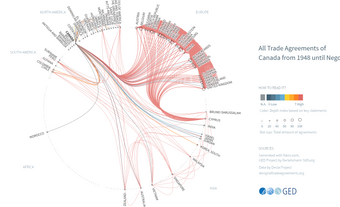
.jpg)
